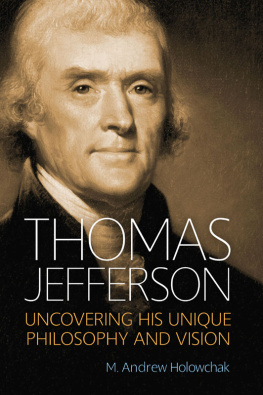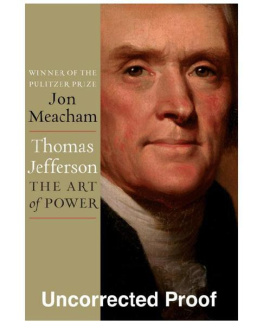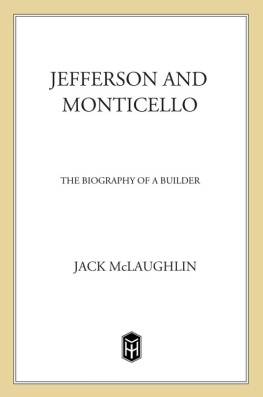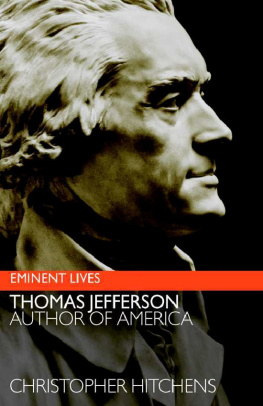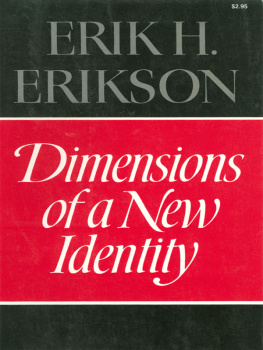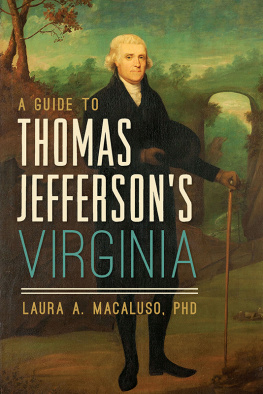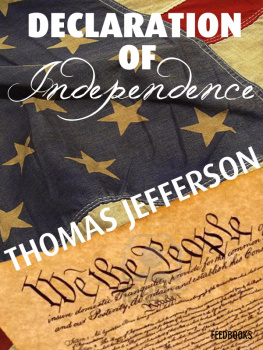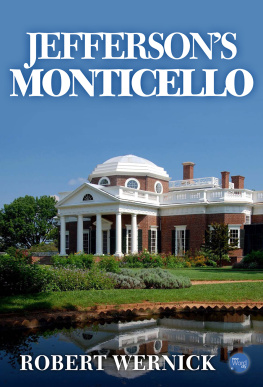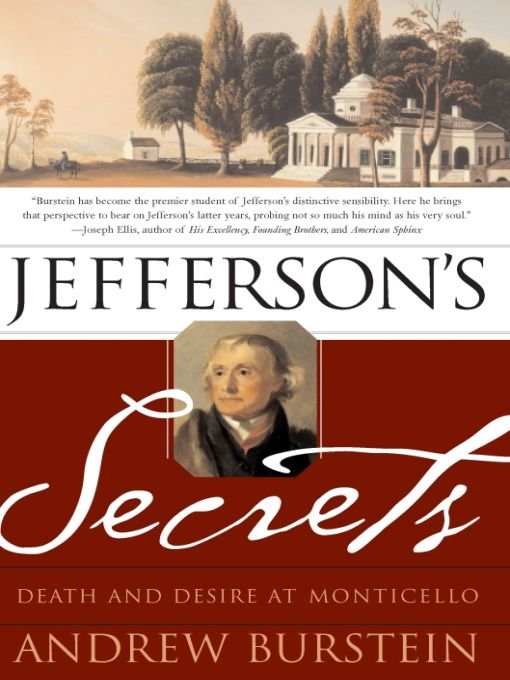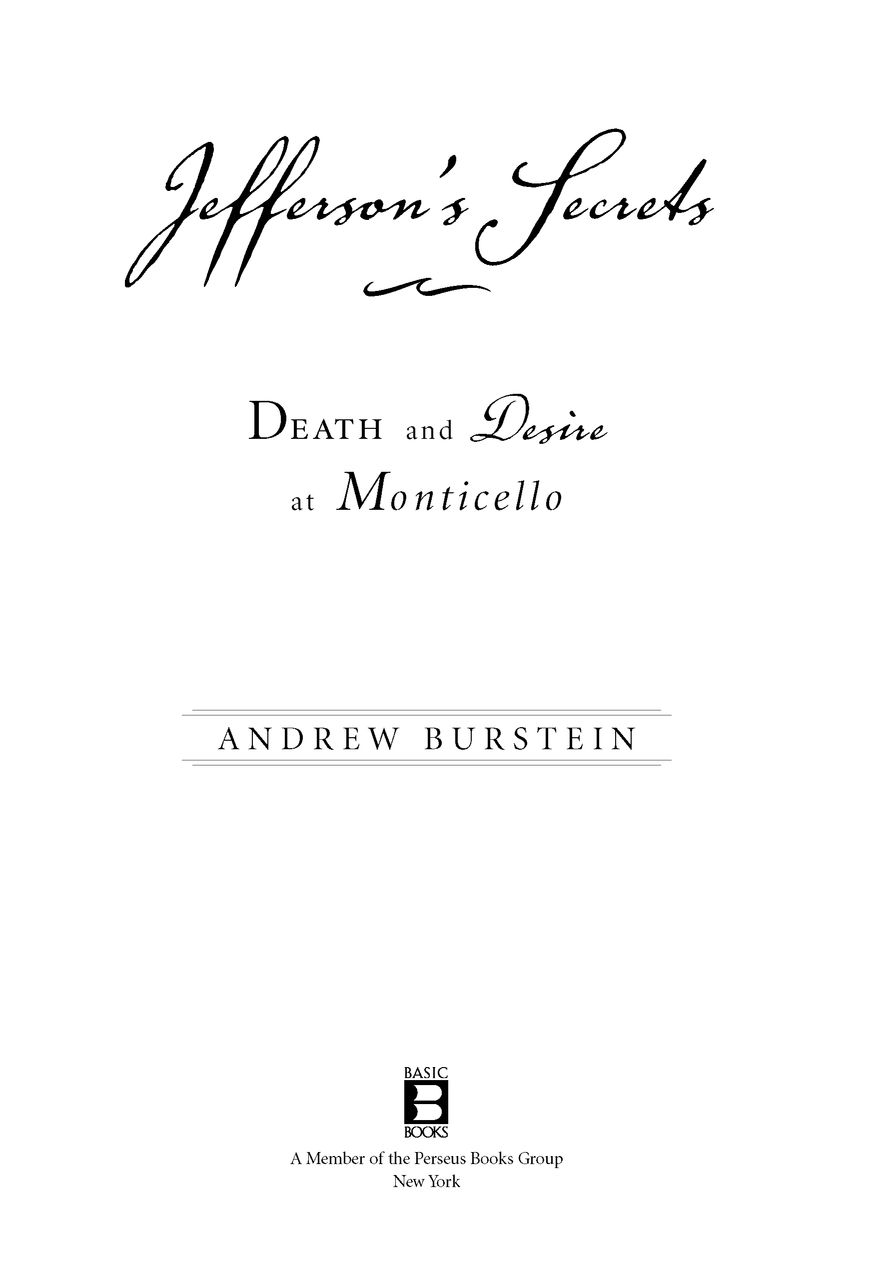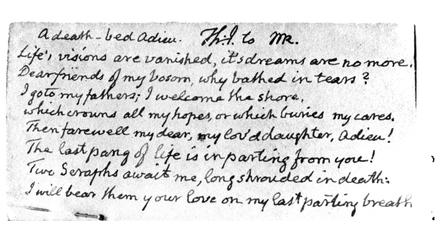Table of Contents
Praise forJeffersons Secrets
Among some historians, its fashionable to denigrate the founder who spoke out the most passionately for democracy... but Andrew Bursteins Jeffersons Secrets takes a different tack, one that is more subtle, more penetrating and ultimately more rewarding... The result is a balanced, sensitive and thoughtful excursion into Jeffersons head and heart.
Washington Post Book World
An absorbing book... acutely makes the connection between what the men of the Enlightenment considered the body politic and what they thought about bodily health.
Christopher Hitchens,Wilson Quarterly
This splendid book shows old Jefferson standing at the precipice, taking stock and perhaps judging himself more harshly than any God might. This is a deeply moving portrait of the aged Jeffersons body, mind and spirit that takes the measure, as Burstein says, of the full range of the founders imagination.
Publishers Weekly
Bursteins deft analysis will be a welcome read for anyone wanting to delve into the exquisitely human aspects of this man of contradictions.
Cleveland Plain Dealer
The result is stunning. Bursteins account shows an aging Jefferson loved by his family, idolized by many citizens and accomplished enough to both invent and direct the University of Virginia. But it also shows Jefferson as a political partisan unable to refrain from causing divisiveness, a defender of equality in theory but sometimes not in practice, a financially desperate landowner so in debt that he sold his treasured library to the federal government, and a long-time widower longing to be sexually active but uncertain how to conduct himself during an era of repressed desires.
Baltimore Sun
Burstein has become the premier student of Jeffersons distinctive sensibility. Here he brings that perspective to bear on Jeffersons latter years, probing not so much his mind as his very soul.
Joseph Ellis, author ofFounding BrothersandAmerican Sphinx
Bursteins subtle and learned exploration of Jeffersons secret life of the mind is as evocative as his Inner Jefferson and as equally rewarding to read.
Richmond Times Dispatch
... students of Jefferson will find [Bursteins] latest effort most illuminating.
Kirkus
Incorporating the latest research, Burstein examines the most delicate issue of recent times with finesse and dispassion... The author captures Jeffersons complexity, contradictions and passion without being clinical and provides us with an interesting, authoritative examination of his secretssecrets revealed by his own active pen.
Virginian Pilot
Burstein provides a fresh window onto Thomas Jefferson... Bursteins great accomplishment is to show us this process [of creating history] at work during Jeffersons lifetime, and to make us conscious of Jeffersons role in it ... [Bursteins] perspective generates some fascinating conclusions.
Chicago Tribune
Bursteins cultural history of eighteenth-century medicine and health science as experienced by Jeffersonboth thinker and patientreveals to us the deep conditions of the environment that shaped Jefferson and that he, more than almost anyone else, shaped. By examining Jeffersons later, less studied writings, Burstein takes a startling new approach to the many and complex facets of Jeffersons imagination and interpretation of the world around him.
Henry Louis Gates, Jr., W. E. B. DuBois Professor of the Humanities, Harvard University
Jeffersons Secrets is a masterful work. Andrew Bursteins confident, insightful, and elegant look at Jeffersons final years brings our third president to life in ways that are sure to inform our understanding of this complex and important man for years to come. Deeply sympathetic to his subject, yet clear eyed in his assessments, Burstein has written an absolutely indispensable addition to Jefferson scholarship.
Annette Gordon-Reed, author ofThomas Jefferson and Sally Hemings: An American Controversy
Also by Andrew Burstein
The Passions of Andrew Jackson
Letters from the Head and Heart: Writings of Thomas Jefferson
Americas Jubilee: How in 1826 a Generation Remembered Fifty Years of Independence
Sentimental Democracy
The Inner Jefferson: Portrait of a Grieving Optimist
Thomas Jeffersons deathbed adieu. Original in a private collection, photostat from James Monroe Museum, Fredericksburg, Virginia.
TO Peter Onuf
Reputation is worthless; trial is best.
Many have good repute who are untried.
THEOGNIS OF MEGARA
The aim of the dreamer, after all, is merely to go on dreaming and not to be molested by the world. His dreams are his protection against the world. But the aims of life are antithetical to those of the dreamer, and the teeth of the world are sharp.
JAMES BALDWIN from Another Country
Postmortem
Why start at death?asks the eighteenth-century poet Edward Young, Wonce considered a genius on the order of Milton and Shakespeare, and a favorite of Thomas Jeffersons from his early years through retirement. Why start at death? Because many mysteries find their solutions in longings expressed at the end of life.
Youngs most famous poem, The Complaint: or, Night-Thoughts on Life, Death, and Immortality, was published around the time of Jeffersons birth. In it, the poet avows that the foreboding sensations we routinely associate with death torment us only if we feel compelled to nourish them from within:
The knell, the shroud, the mattock, and the grave;
The deep damp vault, the darkness, and the worm;
These are the bugbears of a winters eve,
The terrors of the living not the dead.
Imaginations fool, and errors wretch,
Man makes a death which nature never made;
Then on the point of his own fancy falls;
And feels a thousand deaths in fearing one.
The poets point is simple: To fear death is to resist life and misinterpret nature. Jefferson copied Youngs lines into his Commonplace Book, a scrapbook of quotations, sometime in the late 1760s or early 1770s; this was about the time he met his wife and moved to the mountaintop where he had already begun the brightly conceived mansion of Monticello. He built, experimented, redesigned, and brought new life to that reputable prominence, occasionally having to bury friends and loved ones in its shade.
No stranger to sorrow, an elderly Thomas Jefferson was still quoting Youngs verses a half-century later. In a letter he wrote to John Adams from Monticello in 1822, he lamented the worn and weary feeling of old age. Every act felt to him like a pointless repetition, wherein with labring step / To tread our former footsteps. He had been granted long life. His eighty-three years made him, in 1826, one of the last three surviving signers (among the original fifty-six) of the Declaration of Independence. He would tread heavily in former footsteps, as the poet put it, until July 4 of that year. The day Jefferson died was Americas fiftieth Fourth of July, its jubilee as a nation.


